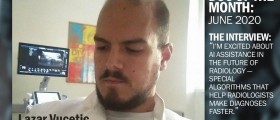Ramesh, a 52-year-old teacher, had always considered himself healthy. He walked to school every morning, rarely fell sick, and never imagined that something as serious as a heart attack could be waiting for him. One day, after feeling a slight discomfort in his chest, he wore his smartwatch—a gift from his son—that continuously tracked his heartbeat. Within minutes, the watch alerted him to irregular heart rhythms and suggested he seek medical attention. At the hospital, doctors confirmed that Ramesh had a blocked artery. What surprised him even more was how quickly the doctors came to this conclusion. Instead of waiting hours for reports, an AI-powered system analyzed his ECG and CT scan in seconds, highlighting the blockage and even predicting the likelihood of another cardiac event. This was not just luck—it was the growing role of Artificial Intelligence (AI) in cardiovascular care.
Loading...













